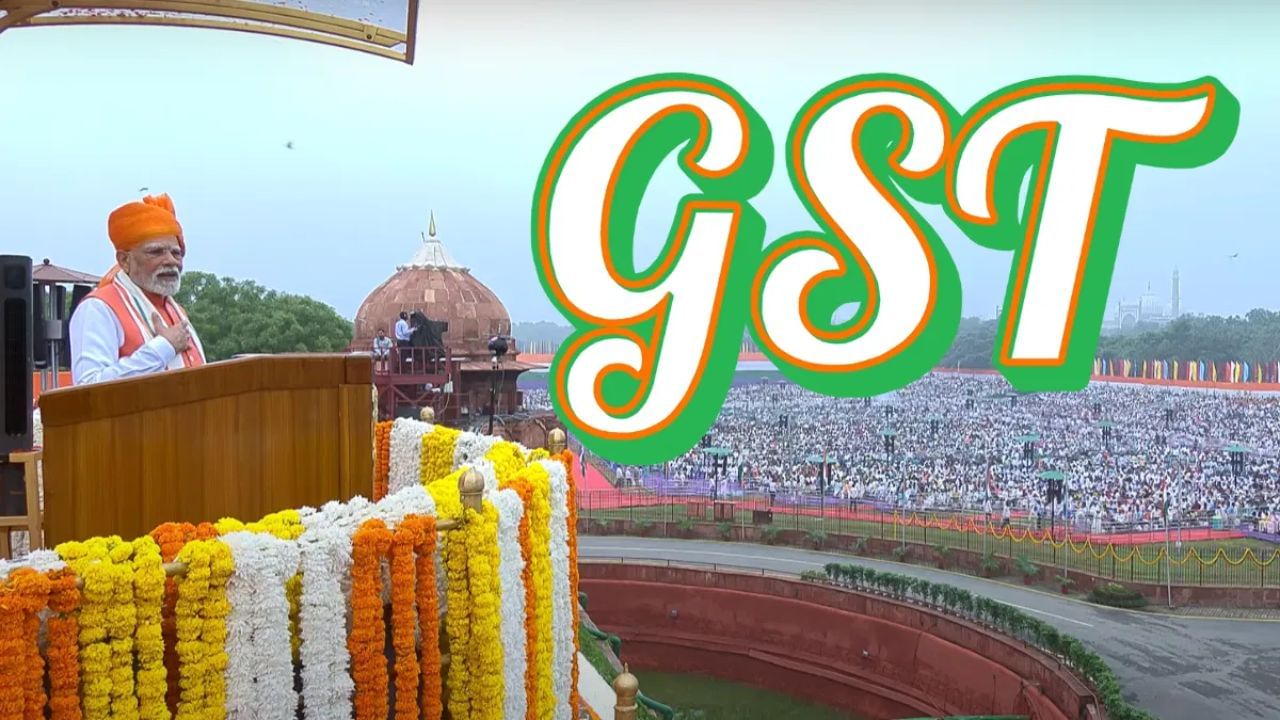Prime Minister Narendra Modi had spoken about GST reforms with the rage of the Red Fort.
In order to reduce the tax burden across the country, Prime Minister Narendra Modi announced ‘Next Generation GST Reforms’ in his speech on the occasion of Independence Day. PM Modi indicated that GST Reforms can be applicable by 2025 Diwali. People aware of the GST reform, on the condition of anonymity, said that the goods coming in GST slab can come in 5 % GST slab, while 28 percent of the GST slabs can fall in the GST slab.
However, he said that the Sins category will have an additional GST slab of 40 per cent of the items, including tobacco products such as cigarettes and beer. Since GST is a tax on a consumption, Jane will be the ultimat benefits of GST reforms. Whose GST will have to be paid less. Let us also tell you which goods are going to be cheap with this new GST reform.
What will be cheap?
According to experts, GST reforms will make everyday needs from grocery items and medicines to TV and washing machines. Agricultural equipment, cycles, even insurance and education will become cheaper, which will provide direct relief to families and farmers and increase consumption in the economy. He said that GST will have only three slabs, which will include 5 percent, 18 percent and 40 percent. About 99 percent of the items under 12 per cent GST slab will come in 5 per cent GST slab, while 28 per cent of the GST slab will have the same goods in 18 per cent GST slab.
The items that currently have 12 per cent tax, including milk, dry frozen vegetables, sausages, pasta, jam, bhujia, salted, tooth powder, milk bottles, carpets, umbrellas, bicycles, utensils, furniture, pencils, jute or cotton and handbags made of 1,000 rupees are included in the GST by 5 per cent.
GST reform in India
The Central Government has sent its proposals to a group of ministers discussing GST reform. This group will submit its recommendations to the GST Council on indirect taxation, which includes the Finance Minister of all the states and presided over by Union Finance Minister Nirmala Sitharaman. The council has the right to accept or reject the proposal with or without amendment.
PM Modi said in his Independence Day speech on Friday that we have discussed with the states and we are bringing Next Generative GST reforms which will reduce the tax burden in the entire country. He further said that this Diwali, I am going to make it double Diwali for you. This Diwali, you countrymen will get a great gift.
